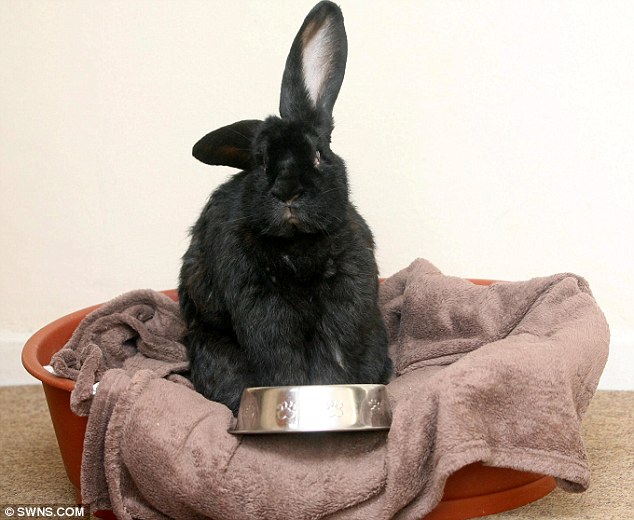Each animal has different dietary requirements, especially when comparing herbivores to omnivores. Rabbits, being herbivores, have a diet mostly consisting of plant items, with a focus on high fiber. Dogs, on the other hand, are carnivores and require more protein and fat in their diet.
When it comes to eating habits, rabbits are more similar to cows, horses, and guinea pigs than to cats, ferrets, rodents, and dogs. They are designed to graze throughout the day, rather than ingesting their daily ration in a single sitting. Dogs, as well as other animals, can eat only once or twice a day, but going without food for a certain period may make a rabbit seriously ill.
Should I Give My Rabbit Dog Food? No
Rabbits love to eat, and they can and do eat a large variety of food. However, this doesn’t mean they should be able to eat anything they want. If your rabbit has tasted dog food or you wanted to try something different for your pet, it is best to refrain from doing so. Rabbits have specific dietary needs that should be addressed.
Dog food contains components that are not suitable for rabbits’ health. For example, animal protein, which is high in dog food, is not the most nutritious option for herbivores like rabbits. Susan Brown, DVM of Veterinary Partner, warns that it is dangerous for rabbits to snack on dog or cat food. These foods are designed for carnivores, not for herbivores. Rabbits consuming excessive levels of protein can experience kidney damage, while excessive levels of fat and grain-based carbohydrates can lead to obesity.
One of the most dangerous side effects in rabbits who eat dog or cat food is the disturbance of the normal intestinal flora, which can lead to intestinal distress and ultimately death. There have been cases where rabbits have become seriously ill and passed away within 24 hours of eating dog food due to acute intestinal disorders.
Additionally, rabbits and dogs have different dental needs. Dog food is designed to be consumed by dogs with their specific teeth structure, while rabbits have teeth designed for grinding. If a rabbit is not given enough hay or grass, serious dental disease can occur, necessitating dental intervention. Providing an appropriate diet with high fiber content is essential for preventative measures.
Diet for Rabbits
The most ideal balanced diet for rabbits consists of fresh vegetables, high-quality and fresh timothy hay, quality rabbit pellets, and an abundance of fresh and clean water on a daily basis. Access to unlimited fresh hay throughout the day is crucial. Supplementary to this, smaller portions of greens and pellets can also be fed.
Hay and Grass: Make hay and grass a majority of your pet rabbit’s diet. Good quality hay is not only nutritious but also keeps them occupied and reduces boredom. It helps maintain strong teeth and jaws.
Pellets: Choose pellets specifically made for rabbits that are high in fiber and low in protein. Pellet intake should decrease as your bunny ages. A small handful of pellets per day is sufficient to encourage hay consumption.
Greens: Rabbits enjoy a variety of fresh vegetables, which are a great source of nutrients and contribute to the strength and lifespan of their teeth. Introduce new vegetables gradually to identify any sensitivities. Ensure the greens are thoroughly cleaned and free from chemicals and pesticides. As a general guideline, feed at least 1 cup of vegetables for every 4 lbs. of body weight per day.
Frequently Asked Questions
Q: Can rabbits eat dog food?
A: No, rabbits should not be given dog food as it is not suitable for their dietary needs. It can lead to various health issues and even death.
Q: What are the dangers of feeding rabbits dog food?
A: Feeding rabbits dog food can disturb their normal intestinal flora, leading to intestinal distress and potentially fatal complications. It can also cause kidney damage, obesity, and dental problems.
Q: What should rabbits eat instead?
A: Rabbits should primarily eat hay and grass, along with high-quality rabbit pellets and fresh vegetables. These provide the necessary nutrients and fiber for a balanced diet.
Conclusion
It is important to understand that rabbits have specific dietary requirements and should not be given dog food. Dog food contains components that are not beneficial for rabbits and can lead to health issues. Providing a balanced diet consisting of hay, grass, pellets, and fresh vegetables is essential for a rabbit’s well-being. Remember to consult with a veterinarian for specific dietary recommendations and any concerns regarding your pet rabbit’s health. Visit Pawsoha for more information on caring for your furry friends.
